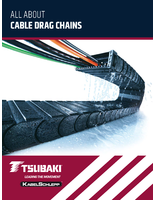ACCA calls for enforcement of EPA rules.
Press Release Summary:
On March 16, association's immediate past chairman, Richard Dean of Environmental Systems Associates in Maryland, told Small Business Administration's Regional Regulatory Fairness Board that EPA's Section 608 regulations are not achieving goals of reducing ozone-depleting compounds in atmosphere. He urged EPA to enforce section 608, or rescind provisions completely. While ACCA supports Section 608, rules need to be enforced if they are to do what they were intended to do.
Original Press Release:
ACCA Calls For Enforcement Of EPA Rules
The Air Conditioning Contractors of America (ACCA), the nationwide association of heating, ventilation, air conditioning, and refrigeration (HVACR) contracting businesses, called on the U.S. Environmental Protection Agency last week to make significant changes to EPA regulations that place an undue burden on contractors.
On March 16, the association's immediate past chairman, Richard Dean of Environmental Systems Associates in Maryland, told the Small Business Administration's Regional Regulatory Fairness Board that the EPA's Section 608 regulations are not achieving their goals of reducing ozone-depleting compounds in the atmosphere. While ACCA strongly supports Section 608 and its goals, the rules need to be enforced if they are to do what they were intended to do.
Section 608 rules require HVACR contractors to take certain measures to maximize the recovery of CFCs and HCFCs while servicing HVACR equipment; repair or replace equipment with substantial CFC and HCFC leakage; and, establish safe disposal practices to prevent CFCs and HCFCs from entering the waste stream. Section 608 also limits the sale of CFCs and HCFCs to only certified HVACR technicians and requires anyone working on HVACR equipment to be certified by the EPA and possess certified recovery equipment.
In his testimony, Dean explained that the program is not achieving its goals and places undue burdens on HVACR contractors. He urged the EPA to either enforce section 608, or rescind the provisions completely. Regardless of the perceived effect of the system in place, section 608 is not working. The recovery industry that blossomed upon enactment of section 608 has pulled back considerably, and recovery processors admit they get back less than 1-3% of the refrigerants in the field.
"While the majority of professional contractors understand the importance of preventing the release of ozone depleting compounds and abide by the regulations set out in section 608 despite great administrative costs and expenses," Dean said, "there are unscrupulous contractors who cut corners and choose to ignore these regulations, and they are rarely punished."
Calling upon his 30-plus years as a contractor, Dean enumerated the costs of compliance for section 608, which include expensive equipment and administrative hassles.
"The good actors invest in refrigerant recovery machines, storage drums, and other equipment to comply with the law," Dean noted. "This includes redundant equipment for the different types of refrigerants as well as back up machines. The compliant contractor completes the necessary paperwork and keeps dutiful records. The bad actors simply vent the refrigerants into the air and hastily move on to the next job without regard for the consequences.
"Unfortunately, EPA is not able to adequately track down and charge these contractors with fines and this creates an unlevel playing field in the market, driving the good contractors to consider skirting the law or to close up shop."
The US EPA does not have adequate resources devoted to section 608 enforcement. Enforcement action is rare. And there is little incentive to increase enforcement since the fines and penalties generated by enforcement go to the General Fund, and not the EPA, Dean pointed out.
ACCA strongly supports the Section 608 regulatory framework and wants the rules to be enforced fairly and consistently. If the regulations are not going to be enforced, then it must be recognized that they will not meet their goals.
The Regional Regulatory Fairness Board will forward Dean's testimony to the EPA with a request for comments and recommendations. The Board will also include Dean's testimony in its annual report to Congress.
For over forty years, ACCA has served the nationwide educational, policy, and technical interests of the small businesses who design, install, and maintain indoor environmental systems. For more information, visit www.acca.org.
Contact: Kevin Holland, 703-575-4477




